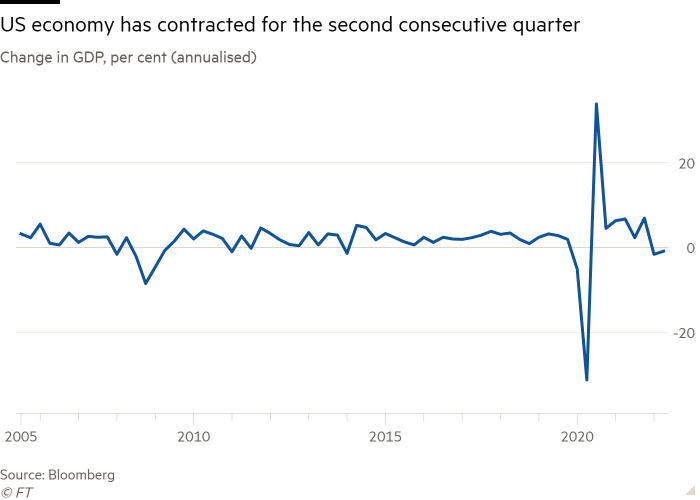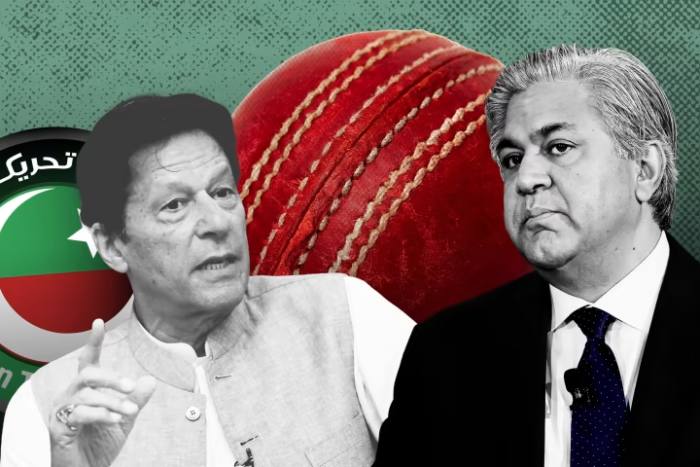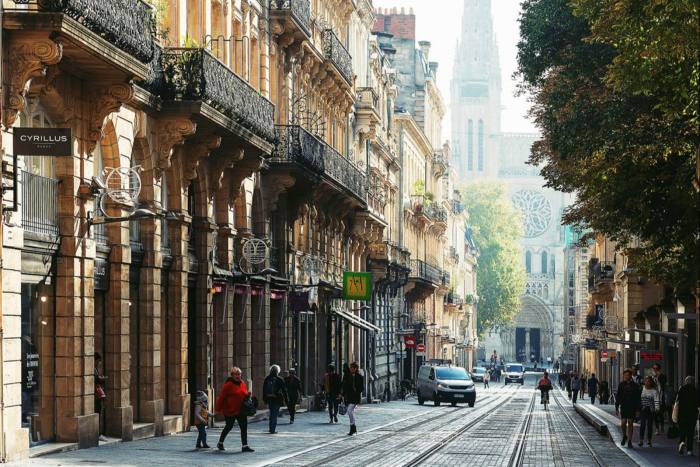Good morning. This article is an on-site version of our FirstFT newsletter. Sign up to our Asia, Europe/Africa or Americas edition to get it sent straight to your inbox every weekday morning
How well did you keep up with the news this week? Take our quiz.
Foreign secretary Liz Truss has rejected suggestions of a windfall tax on energy companies’ profits, despite British Gas owner Centrica’s announcement of huge earnings and calls for increased support for UK households struggling with rising fuel bills.
Truss, who in recent weeks has led the polling in the race to become leader of the Tory party and the next prime minister, said such a move would “send the wrong message” to the world, adding that the government should be encouraging Shell and other companies to invest in the UK.
Speaking to Conservative members in Leeds yesterday during the first of 12 party hustings, Truss argued that in the face of a global economic crisis and war in Ukraine, it was “not the time for the status quo”, as she outlined policies to boost growth and rein in the cost of living crisis.
“What I would do is create low-tax investment zones, encouraging those companies to invest in our country,” she said.
Thanks for reading FirstFT Europe/Africa. I hope you have a restful weekend. See you next week — Jennifer
Five more stories in the news
1. Apple ekes out revenue growth The Silicon Valley giant’s revenues grew slightly to $83bn on the back of iPhone sales and its services division despite headwinds from supply chain shortages and factory shutdowns in China.
-
Other big earnings: EY told staff it expects to report record global revenues of $45.4bn. Amazon shares rose 10 per cent after it beat revenue expectations. Intel, however, disappointed investors with an unanticipated slump in revenue.
2. Xi Jinping warns Joe Biden not to ‘play with fire’ The Chinese and US presidents held a two-hour call yesterday, their first since Beijing was angered by a planned visit to Taiwan by House Speaker Nancy Pelosi. Her visit has lent urgency to the island’s war games.
3. UK tycoon faces jail over ex-wife’s maintenance and legal costs Sir Frederick Barclay, 87, faces a possible short prison sentence after a judge found him in contempt of court yesterday for failing to pay his former wife maintenance and legal costs totalling £245,000.
4. Strike threatens UK’s biggest container port The Unite union members’ decision to walk out over pay could shut down Felixstowe port next month, bringing further disruption to the country’s transport network as rail dispute talks remained deadlocked.
5. US economy shrinks for second consecutive quarter The US economy shrank 0.9 per cent on an annualised basis, marking its second quarter of contraction, one of the common criteria for a technical recession, and complicating the Federal Reserve’s effort to stamp out soaring inflation with aggressive interest rate rises.
-
More from across the Atlantic: Joe Biden is on cusp of two legislative wins ahead of midterm elections after Congress passed the Chips and Science Act and a Democratic senator made a U-turn on a tax, climate and social spending bill.

Thank you to everyone who took part in yesterday’s poll. Fifty-seven per cent of respondents said they were not optimistic that Ulrich Körner’s appointment as chief executive will change Credit Suisse’s fortunes.
The days ahead
Eurozone GDP Eurostat’s first estimate of second-quarter gross domestic product today is expected to show a quarterly expansion of 0.1 per cent, which would be the weakest performance since a coronavirus surge dragged the bloc into a short recession at the start of 2021.
-
More economic data: France publishes preliminary second-quarter GDP, plus July consumer and producer price indices. Germany releases flash GDP alongside July labour market figures, while Italy has July’s CPI. The US employment-cost index is forecast to have eased in the second quarter, while household spending is expected to have picked up in June. (FT, WSJ)
Corporate earnings Results are out for Air France-KLM, AstraZeneca, BNP Paribas, Chevron, Colgate-Palmolive, ExxonMobil, NatWest, Procter & Gamble and Renault. Read the full list in our Week Ahead newsletter.
US-Japan EPCC meeting US secretary of state Antony Blinken and secretary of commerce Gina Raimondo co-host the first meeting of the US-Japan Economic Policy Consultative Committee in Washington today.
UK strikes Communication Workers Union members employed by BT and Openreach will strike for 24 hours in a row over pay today, and again on Monday. Aslef train drivers at eight rail companies will walk out tomorrow in a pay dispute, which is expected to cause severe disruption, potentially affecting travel to the women’s Euro 2022 final.
Senegal elections Parliamentary elections to decide the 165 members of the National Assembly begin on Sunday.
What else we’re reading
Disney after ‘Don’t Say Gay’ Since it was founded, the entertainment giant has catered to the traditional nuclear family, but in the past 30 years it has also become a mecca for LGBT+ people. Disney is contending with arguably the worst publicity crisis in its history over executives’ bungled response to a Florida bill preventing “sexual orientation or gender identity” discussions in schools.
The cricket match that helped fund Imran Khan’s political rise Despite laws banning foreign funding in Pakistani politics, documents show a trail from Oxfordshire via the United Arab Emirates to the coffers of Khan’s party. The funds are at the centre of an election commission investigation that has taken on greater importance as Khan, who was ousted in April, plots a political comeback.

Extreme heat is a wake-up call for infrastructure investors Europe’s heatwave has made clear failings of infrastructure in extreme weather. Trains moved more slowly. A runway at Luton airport buckled. Schools closed. In a hotter world, infrastructure will need to adapt. All this creates opportunities for investors, writes Alice Ross.
WFH debates must include what ‘home’ actually is From affordable accommodation in city centres to commute lengths, the question of where employees live is important, writes Emma Jacobs — working in a stifling flat is a very different proposition to an airy home. Employees’ decisions to move further from work during the pandemic are causing tensions.
In defence of people watching The activity for which London is tailor-made can be read as a morally dubious guilty pleasure, more akin to voyeurism. This is partly because looking isn’t always a neutral action. It depends who’s looking, and what their intentions are. But Ana Kinsella argues that observing those around us can make us more empathetic.
House & Home
Remote working has opened up France’s south-west, recently beset by wildfires, to buyers wanting to take their money further.

Thank you for reading and remember you can add FirstFT to myFT. You can also elect to receive a FirstFT push notification every morning on the app. Send your recommendations and feedback to firstft@ft.com. Sign up here.


Comments are closed, but trackbacks and pingbacks are open.